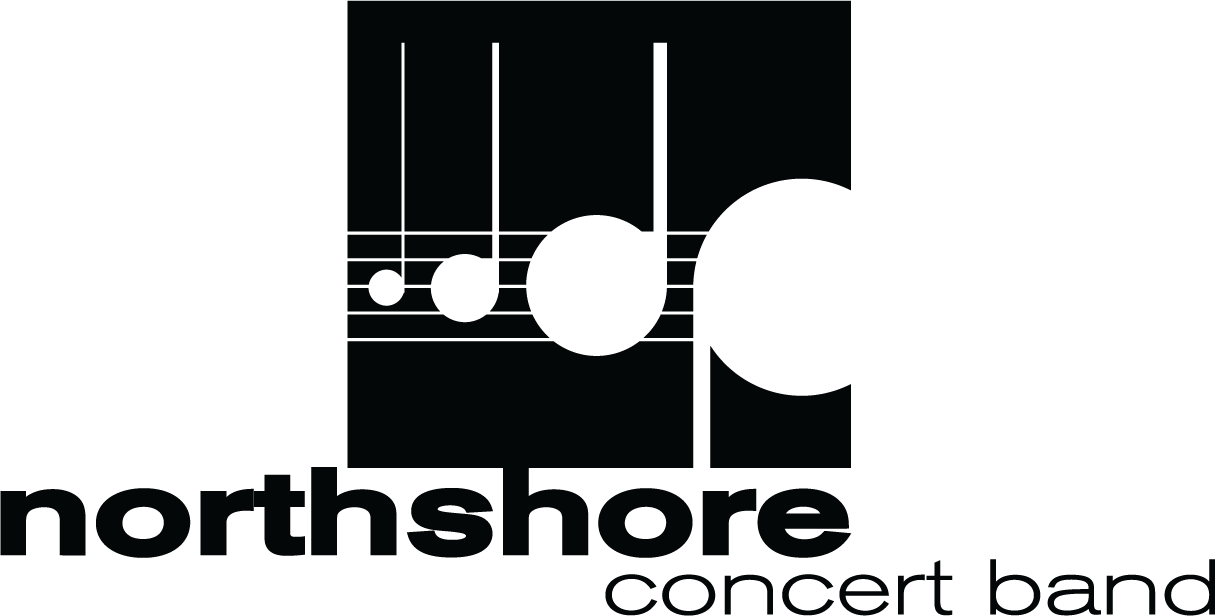A Tribute to John P. Paynter — Lessons & Learnings from Mr. Paynter
Celebrating the life and legacy of our friend and founder, A Tribute to John P. Paynter chronicles Mr. Paynter’s impact on the lives of countless individuals through his time on the podium at Northwestern University, leadership of the Northshore Concert Band, and encounters over his lifetime.
Mallory Thompson and John Paynter at a Northwestern University football game.
MALLORY THOMPSON
Mallory Thompson and John Paynter later in their careers.
My experiences playing trumpet in ensembles with Mr. Paynter began with the Minnesota All-State Band and included the Northwestern University Symphonic Band, Marching Band, Waa-Mu Orchestra, and West Side Story Orchestra. The most striking and timeless aspect of his rehearsals was his ability to hear and his complete control over everything in the room. He was clear, worked quickly, had a wicked sense of humor, and honed in on whatever needed to be done.
Mr. Paynter was a brilliant and articulate rehearsal technician. He could hear everything and was able to get to the point clearly and efficiently. I always appreciated the way he used the words “please” and “thank you” to demonstrate his respect for the ensemble. He was famous for his rehearsal techniques lecture, where he said: “Know your stuff, know who you’re stuffing, and stuff them.”
The scope of John Paynter’s work is almost unprecedented, and the number of people he influenced would be impossible to measure. Through his work at Northwestern University, the Northshore Concert Band, his leadership of the Midwest Clinic, his arrangements, the All-State bands, band clinics, lectures, commissioned works, world premieres, and composers he encouraged, his influence has been profound.
It is easy to list a person’s accomplishments or tell stories, but the most important legacy is passed from one individual to another. I rarely talk about my experiences with Mr. Paynter because I treasure them as being private and intensely meaningful. That said, here are some of the most important lessons I learned during my time with Mr. Paynter:
Have a plan — what is possible, what needs to be done, and what are your priorities?
The best way to be in charge of a room is to be well prepared — study your scores.
Always work to develop your ear.
Move quickly in rehearsal and be clear about what you want.
Hold students accountable.
It is good to be able to show students different sides of who you are.
Students know if you are sincere and know if you like being with them.
Your job as a teacher or director is to nurture the individual while protecting the group.
Consider if your ensemble is more of a musical or social organization. If it is a musical organization, then decisions need to be made for musical reasons.
Anyone can get excited for game day or a concert, but you demonstrate your discipline and who you are in the work you do every day.
If you want to be good, you have to do the work — not just talk about it.
There are no shortcuts — doing things the right way is a reward in itself.
A well-placed metaphor, sound effect, or short story and make a point much more effectively than talking too much.
Know your history, but be flexible and creative moving forward — do not become a museum.
No one likes change — change takes a lot of work.
Take the long view and make changes gradually and thoughtfully.
Controlling everything in every way is not necessarily a positive.
Stand behind your beliefs whether you win or lose.
It is good to be part of something bigger than you are.
Humor is a valuable tool.
Excerpts from Whatsover Things . . . The Life and Teachings of John P. Paynter, conceived and edited by Mark Camphouse (GIA Publications, 2015)


